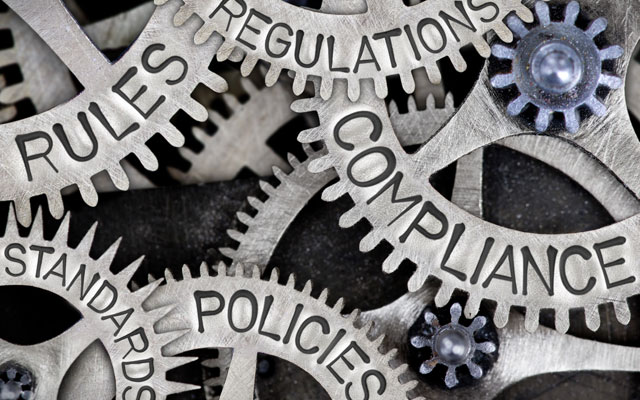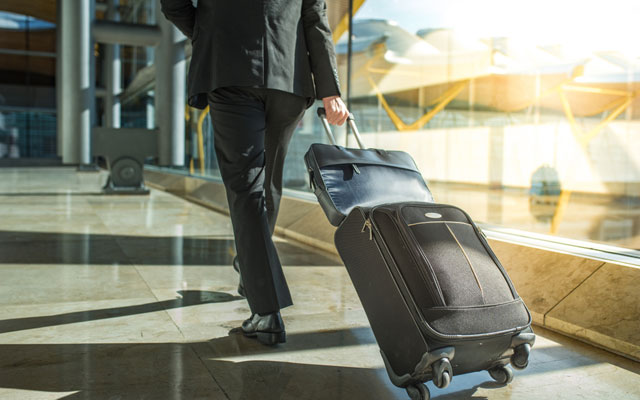- Ever-changing travel restrictions top list of obstacles to safe travel resumption
- Duty of care now takes precedence over corporate cost savings
- Data-powered solutions can help companies manage complexities

Mounting obstacles to safe travel resumption alongside Covid-19 infection concerns have led companies to refine their travel policies to better reflect the reality of today’s unusual travel landscape, even as travel is not yet possible for all markets.
Among these obstacles, according to two of Asia-Pacific’s top travel management companies (TMCs), are complex and varying travel restrictions around the world, capacity challenges, and difficulty in enforcing Covid-19 vaccination and use of health passports among business travellers.
Joanne Taylor, senior director, account management & consulting, Asia, FCM Travel, said: “With government restrictions, including immigration regulations, border closures as well as quarantine and lockdown conditions, still constantly changing, this becomes a challenge for travellers to monitor regularly, and have certainty on what they need to know or do in various countries. The uncertainty of movement from snap government decisions and existing border closures along with short notice on regulation change is also a big drawback for travellers as they are concerned about getting stranded in a destination.”
Adding to the pain of comprehending and tracking travel restrictions is the fact that these regulations could even vary from one state or region to the next within the same country, said Akshay Kapoor, head of sales, Asia Pacific with CWT.
“That makes it difficult for organisations to get their head around their return to travel plans,” he remarked.
And even when essential travel is allowed or if travellers have the confidence to travel again, Taylor said securing seats for these travellers could be a challenge.
“With cancellation or reduction of various air routes over the past year due to a lack of demand, supply has become greatly constrained as well. Lockdown and post-lockdown announcements bring a different set of challenges to gaining seat access where mass requests consume most of the supply and seat priority is given to those who are stranded in a destination,” she said, adding that transit conditions bring yet another set of complications to the equation.

Meanwhile, as Covid-19 vaccines and digital health passports are made available to facilitate a safe return to travel, Kapoor said companies must now determine the extent to which they and the travel ecosystem can dictate sensitive and personal choices over the use of these products.
When asked if companies might make it compulsory for frequent travellers in their teams to be vaccinated against Covid-19, Kapoor said it was not something he has seen.
“Companies will naturally want to minimise the risk of an employee contracting the disease while travelling for work and then passing it on to their co-workers upon their return. However, while employers can actively promote their position towards vaccination campaigns and engage staff in a constructive discussion, insisting that employees get vaccinated or sign up for health passports could carry legal risks,” he said.
Duty of care at the core
The current complex travel landscape has highlighted a greater need for duty of care as companies work hard to reassure their travellers and have better control over future travel plans.
Peter Koh, Asia strategic sourcing manager, travel and professional services with Corning, Inc., recalls how a race to procure PPE and other essential health and safety equipment for his frequent travellers had started in February 2020, when news of Covid-19 first broke.
“Many Asian travel managers moved early to prepare themselves (for a changed travel landscape and heightened need for duty of care) because we knew this was going to impact our daily life for a while,” Koh said, alluding to Asia’s experience with the SARS pandemic.
He added that some companies have also established their own health policy to ensure that staff are fit and ready to travel.
According to Kapoor, duty of care to staff, both in terms of physical and mental well-being, has now taken precedence over cost savings.
“Customers do acknowledge that their businesses are suffering or missing growth opportunities due to travel restrictions, but the focus still remains on ensuring safety over any other priority,” Kapoor told TTGmice.
He noted that most clients are prioritising safe reopening of their offices while encouraging remote working arrangements. Resuming in-person meetings in the same city comes next, and eventually the act of bringing back some essential domestic business travel.
“International travel, of course, still remains largely restricted,” said Kapoor.
Taylor confirms that health, security, environment and community (HSEC) objectives are the primary reason for companies to refine their travel policies.
FCM Travel witnessed a surge in requests from companies to adapt or craft addendums to their travel policies when the Covid-19 pandemic first reared its head in early 2020, with changes focused on addressing new health, safety and sanitation requirements, increasing visibility of travellers, and adopting stricter approval processes to ensure greater compliance.
“A large portion of these changes took place between March and June 2020, of which March and April saw the largest volume of uptake for the Asia region. The majority of our customers adapted their travel policies rather than a complete revision from June onwards,” she revealed.
Between then and now, alterations to travel policies have been few, “as travel bubbles and green lane arrangements have not been as easy and successful in stimulating greater business travel volumes”.

But with vaccination programmes gaining momentum across major cities around the world, Taylor expects another surge in travel programme refinement later this year.
Koh said travel managers would be keeping close tabs on vaccination progress. He said: “We have many questions about how travel restrictions might change as more people get vaccinated. For example, will vaccinated individuals get to skip mandatory quarantines, especially at destinations they frequent for meetings? What vaccines will be recognised by which governments? We have been posing questions to various embassies but are not getting clear responses yet.”
In addition, Koh expects the rollout of various health passports to also shape travel policy changes, and expresses grave concerns about additional complexities should different health passports be adopted by different governments and airlines.
Help needed
It comes as no surprise that TMCs have observed a spike in client requests for assistance to make sense of these obstacles, and they have responded with data-driven solutions.
FCM Travel developed the Traveller Hub in June 2020, an interactive resource providing extensive up-to-date Covid-19 travel information to help clients keep up with the ever-changing travel requirements and restrictions.
CWT has also introduced a series of data-powered solutions, such as the Return to Travel dashboards that provide latest information on Covid-related risks and travel restrictions; and CWT Travel Essentials search tool that gives travellers easy access to information on applicable restrictions, procedures and travel requirements based on their specific travel itinerary.
Besides needing assistance in visualising post-pandemic travel policies and planning for action needed in the coming months, CWT’s clients are also looking to add suppliers such as PCR testing labs and Covid-19 travel insurance providers into their travel programme.
“They are also thinking about how they can strike the right balance between an efficient and well-scrutinised travel approval processes,” shared Kapoor.
CWT hopes to find that balance through its new ECO framework, launched September 2020 to help companies look beyond compliance and cost management, and build more balanced travel programmes that also aligned with other important objectives. It is believed that through this approach, business travel becomes an avenue through which companies can simultaneously create an engaged and motivated workforce, reduce their environmental impact, and manage costs more effectively.
A China case study
China’s ability to contain the Covid-19 pandemic sooner than other parts of the world, enabling the resumption of domestic travel, has made her the “beacon of hope for global travel”, remarked Kapoor.

A McKinsey & Company report in October 2020 noted that demand for domestic travel had approached pre-pandemic levels by the end of August. ForwardKeys made similar observations, noting that domestic seat capacity had returned to pre-pandemic levels by August 2020 and eight per cent more seats were added in 4Q2020 to cope with rising demand. While Chinese airlines had to slash 23 per cent of seat capacity in February 2021 due to Chinese New Year travel restrictions, they brought back 19 per cent more seats in March 2021 compared to pre-pandemic levels.
Albert Zhong, general manager, China, CWT, confirms that the majority of his clients in China had resumed pre-pandemic levels of domestic business travel by the end of 2020.
While occasional new cases of Covid-19 infections in some cities would impact traffic, Zhong said overall demand for domestic business travel across China is recovering steadily.
Like companies elsewhere in the world, Chinese employers have made duty of care and traveller health and safety their prime focus over the past year.
“We are increasingly seeing Chinese companies requiring employees to secure pre-trip approvals not only from their line managers, but also from the human resource department, so that their trips can be tracked in a timely and efficient manner. In many cases, local governments are also issuing travel advisories, rules and regulations,” shared Zhong.
“As a result, reporting and traveller tracking capabilities have become a key criteria for companies when selecting a TMC to work with,” he added.
Chinese companies have also grown to lean more onto their TMCs for pre-travel information, such as government-imposed travel restrictions, Covid-19 testing and quarantine requirements, as well as hotel and airline operations.
He acknowledges that travel arrangements continue to be complex “due to the sheer unpredictability of the current environment and how quickly things can change”.
As such, every party in the travel ecosystem must “play its role to the best of their expertise”.
“For example, from a TMC’s perspective, we have had to increase our capability to communicate and connect with our clients and their travellers, including providing pre-trip advice, safety and security alerts, and traveller tracking. Last year, CWT in China published hundreds of travel-related news articles and alerts on WeChat for our corporate clients. We also organised a number of webinars, including some with airlines and hotels, to provide industry updates to our customers. All these actions were highly appreciated and recognised by our clients in China.”
Zhong opined that TMCs have to think differently in offering value to clients in such unusual times.





















